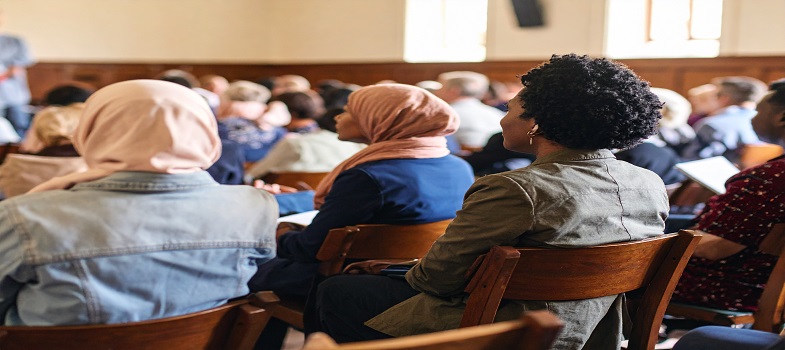Frequently asked questions (FAQs)
1. Do I need to be a British citizen to participate in public life in the UK?
No. Many forms of participation, such as volunteering, responding to consultations, or contacting elected representatives, are open to all residents, regardless of citizenship or immigration status.
2. Can I vote in UK elections as a migrant?
It depends on your nationality and immigration status.
- British, Irish, and qualifying Commonwealth citizens with leave to remain can vote in all UK elections.
- EU citizens can vote in local and mayoral
elections in England and Northern Ireland.
Use the Can I Vote? A tool to check your eligibility.
3. Is it safe for migrants to get involved in campaigns or raise concerns?
Yes, but everyone’s situation is different. Some people may face risks, especially those without a stable immigration status. It's best to assess your circumstances and get advice from support organisations before engaging publicly.
4. How can I find volunteering opportunities as a migrant?
You can find roles through websites like Do-it.org, Reach Volunteering, or by contacting local community centres and charities. Most migrants can volunteer even if they are not permitted to work, but check your visa conditions to ensure compliance.
5. How do I find out who my Member of Parliament (MP) or local councillor is?
Use WriteToThem.com. Enter your postcode to find and contact your elected representatives.
6. I don’t speak English fluently. Can I still get involved?
Yes. Many organisations offer support in multiple languages or simple English. Volunteering or joining local activities can help you improve your language skills over time.
7. Can I join a trade union or political party as a migrant?
Yes. Most trade unions and political parties are open to all residents. Some roles, such as serving in a national office, may have restrictions based on an individual's immigration status.
8. What is a public consultation, and can I take part?
A public consultation occurs when the government or local authorities seek feedback from residents regarding a policy or plan. Generally, anyone, including migrants, can participate, particularly if the consultation is open to the public.
9. I care about an issue (e.g. housing or climate change), but don’t know where to start. What should I do?
Start by talking to others in your community or joining local events. Look for local campaigns or groups working on the issue. The guide includes examples and steps to help you act safely and effectively.
10. What if I need help understanding my rights or writing to officials?
Organisations like Citizens Advice, Migrants Organise, or your local support centre can help you understand your rights and even help you write letters or prepare for meetings.
11. I’m new in the UK and don’t know much about British culture. Can I still take part in local activities?
Yes! You don’t need to know everything to get involved. Local groups and events are for everyone. People often appreciate when newcomers show interest. It’s a great way to learn more about life in the UK and meet friendly people.
12. I don’t speak English fluently. What if people laugh at me or don’t understand me?
Many people in the UK speak with various accents and different levels of English; this is entirely normal. Most individuals are kind and will try to understand. Engaging in activities can help improve your English in a natural way. You can also seek out groups that support migrants or offer language-friendly spaces.
13. I feel shy and afraid to participate. What if I do something wrong?
It’s okay to feel nervous; many people do at first. Start small, like attending a community event or helping with a task. Most groups are welcoming and don’t expect you to be perfect. It’s about showing up, learning, and growing.
14. If I do volunteering, can I get a certificate?
Yes, many organisations provide a volunteer certificate or a reference letter. These can be beneficial for your CV, job applications, or even visa applications in some instances. Always enquire with the organisation if they can provide one upon your completion.
15. Will participating in migrant support groups affect my immigration status or DBS check?
No, simply taking part in migrant support groups or local activities will not affect your immigration status or DBS (Disclosure and Barring Service) check. However, if you apply for certain jobs (especially with children or vulnerable people), a DBS check may be done. Volunteering itself is a positive thing and does not create a criminal record.
16. Do I need to pay to join community activities or volunteer?
Most community events and volunteering opportunities are free. Some may even cover your travel or lunch costs. Always ask in advance so you know what to expect.
17. I want to get involved, but don’t know where to start. What’s the first step?
Try visiting your local library or community centre. They often have information about local events, classes, or volunteer roles. You can also ask someone you trust or check online (e.g. Do-it.org or Volunteering Matters).
18. If I volunteer, can I bring my children with me?
Some activities may allow this, especially in family-friendly spaces, but others may not. Always check with the organisers. Some community centres even offer activities or childcare for children while you volunteer.
19. If I try to raise awareness among migrants about civil fines like littering or ticket penalties, is it a form of civic participation?
Yes. Sharing information to help others understand the rules, such as fines for littering, not purchasing a train ticket, or other civil penalties, represents a positive example of civic participation. By helping others to learn and stay informed, you contribute to your community, support fair treatment, and assist people in avoiding problems. Such actions demonstrate leadership and concern for others, both of which are essential aspects of civic life.
